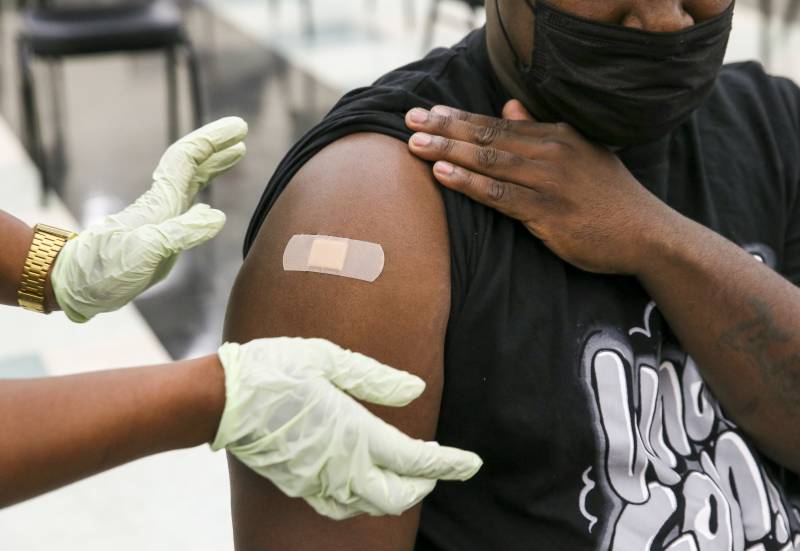"We are immediately pulling in those people, getting them the doses," Boom says. He applauds the FDA's decision, but says the agency could have acted faster, noting that countries like Israel, France and the U.K. have already made this move.
Friday's recommendations from the Centers for Disease Control and Prevention leave some questions about exactly who is eligible for an additional dose and how to get it. Here's what we know so far.
1. Why should immunocompromised people get a third shot?
Having a compromised immune system puts you at higher risk of severe illness and death from COVID-19. Studies show that the initial vaccine doses are less effective for people with weakened immune systems, ranging from 59% to 72%, compared to 90% to 94% among people without serious immune deficiencies.
People with conditions that weaken the immune system are also far more likely to have a breakthrough infection than people without. One U.S. study shows 40% to 44% of hospitalized breakthrough cases are in immunocompromised people.
"If I was someone who was on one of the medications that was on the CDC list, I would almost consider myself unvaccinated at this point," said Dr. David Karp, who heads the Division of Rheumatic Diseases at UT Southwestern Medical Center.
Karp says that even though the current delta surge has mostly hit unvaccinated people, vaccinated but immunosuppressed patients also are landing in hospitals with COVID-19.
"For this group of patients, a third shot is going to improve their response to the vaccine and therefore lessen their chances of either contracting the disease or having a more serious disease," said Karp, who is also president of the board of directors of the American College of Rheumatology.
"I'm really excited," said Pat Beale, 59, of Boise, Idaho, who lives with a liver transplant and takes medicine that suppresses his immune system. He plans to get his third dose within the next week.
2. Who should get third shots?
Only a very small group of people with weakened immune systems qualify for the third dose. The CDC is recommending it for moderately to severely immunocompromised people, including those who have:
- Been receiving active cancer treatment for tumors or cancers of the blood.
- Received an organ transplant and are taking medicine to suppress the immune system.
- Received a stem cell transplant within the last two years or are taking medicine to suppress the immune system.
- Moderate or severe primary immunodeficiency (such as DiGeorge syndrome or Wiskott-Aldrich syndrome).
- Advanced or untreated HIV infection.
- Active treatment with high-dose corticosteroids or other drugs that may suppress the immune response.
The recommendation is limited to adults 18 and older for the Moderna vaccine because that vaccine has not been authorized for adolescents yet. The Pfizer vaccine is authorized for adolescents 12 and older, and adults.
3. I don't know if I'm immunocompromised, but I do have a chronic disease that makes me vulnerable to severe COVID-19 — should I be getting a third shot?
Many people may consider themselves at higher risk of serious illness from COVID-19 due to age or a preexisting condition, and may want another dose of vaccine. But, for now, an additional shot is only recommended for people who meet the CDC's criteria for being immunocompromised.
People with other chronic conditions — even those that put them at higher risk for severe COVID-19 — are not authorized to get an additional dose at this point.
"This would not include long-term care facility residents, persons with diabetes, persons with heart disease. Those types of chronic medical conditions are not the intent here," said Dr. Amanda Cohn, former chief medical officer for the CDC’s COVID-19 Vaccine Task Force, at Friday's CDC committee meeting.
It's not clear yet whether or when a booster will be recommended more broadly to vulnerable populations, though this is already underway in other countries including Israel. Health officials are currently tracking how well immunity holds up in people enrolled in the vaccine clinical trials. Those trials will determine the timing of booster shots, officials of both the FDA and CDC say.

9(MDAxOTAwOTE4MDEyMTkxMDAzNjczZDljZA004))